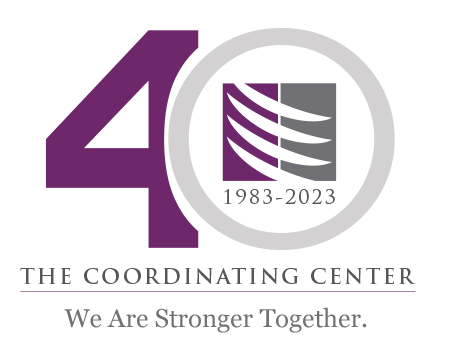By: Renée Dain, SVP, Strategic Partnerships
National Hunger and Homelessness Awareness Week, occurring annually one week before Thanksgiving (November 13 to 21 this year), sheds light on the challenges faced by the less fortunate in society, especially during the holiday season and harsh winters. This significant event, organized by the National Coalition for the Homeless, inspires Americans to get involved in social causes by making donations, signing up for volunteer programs, and participating in awareness initiatives and rallies. The week serves as a platform to address the root causes of homelessness and advocates for change by holding lawmakers and councilmen accountable.
Many individuals or families experiencing homelessness face unjust stereotypes and discrimination, often being wrongly perceived as criminals. They are unfairly treated by both laws and city planning and often face unkindness from other residents. National Hunger and Homelessness Awareness Week aims to dispel these misconceptions by educating people about the reasons behind homelessness and encouraging compassionate support. For many Americans living paycheck-to-paycheck, a sudden illness, injury, or job loss can lead to poverty, hunger, and/or homelessness. According to the Census, in 2021, nearly 38 million Americans live below the poverty line, and one in seven children is affected by poverty. USA Facts reports more than half a million Americans are homeless. Thankfully, various organizations step in, offering essential services such as food, shelter, and medical assistance. During this week, it’s essential to celebrate by backing local organizations that assist individuals in finding jobs, permanent housing, and access to medical facilities, fostering a more empathetic and supportive community.
 In this blog post, we will explore with Priscilla Lissik, Director, Homeless Support Services, the stereotypes, causes and solutions to unraveling the threads of homelessness and hunger.
In this blog post, we will explore with Priscilla Lissik, Director, Homeless Support Services, the stereotypes, causes and solutions to unraveling the threads of homelessness and hunger.
What are some additional stereotypes and prejudices faced by homeless individuals and how can we combat them?
Individuals or families experiencing homelessness frequently confront a barrage of stereotypes and prejudices, perpetuating misconceptions that they are lazy, dangerous, or solely responsible for their situation. These prejudices hinder empathy and often result in social exclusion, making it even harder for them to reintegrate into society. To combat these stereotypes, it is essential to raise awareness about the diverse reasons behind homelessness, emphasizing the systemic factors like lack of affordable housing, mental health issues, and unemployment. Education and media campaigns can challenge these stereotypes by highlighting individual stories, showcasing the resilience and strength of homeless people who are working towards improving their lives. Encouraging personal interactions and fostering understanding within communities can also break down barriers, fostering empathy and support networks. Ultimately, combating stereotypes requires a collective effort to change societal attitudes and promote inclusivity, ensuring that homeless individuals are seen as individuals with unique stories and potential, rather than being defined by their housing status.
What are the main causes of homelessness, and how can they be addressed?
Homelessness is a multifaceted problem stemming from various factors such as the lack of affordable housing, unemployment, mental health issues, substance abuse, domestic violence, discharge from institutions, natural disasters, economic crises, inadequate support for veterans, and systemic problems like racism and discrimination. To address these challenges, comprehensive solutions are crucial. This includes increasing the availability of affordable housing through subsidies and public housing programs, improving access to job training and mental health services, implementing substance abuse prevention and treatment programs, enhancing discharge planning for individuals leaving institutions, establishing disaster response plans, providing targeted support for veterans, addressing systemic issues through policy changes and education, and strengthening social safety net programs. Collaboration among government agencies, nonprofit organizations, and the community, alongside adequate funding and a focus on both immediate assistance and long-term strategies, is essential to making significant progress in reducing homelessness.
What is the impact of mental health issues and substance abuse on homelessness?
The impact of mental health issues and substance abuse on homelessness is profound and interconnected. Individuals grappling with mental health disorders often face challenges in maintaining stable employment and relationships, making it difficult to sustain housing. Moreover, untreated mental health conditions can lead to self-medication through substance abuse, exacerbating the problem. Substance abuse further hampers one’s ability to hold a job, maintain housing, and build a support network, often resulting in a cycle of homelessness. Additionally, the lack of access to mental health services and addiction treatment programs in many communities leaves these vulnerable individuals without the necessary support to address their conditions, perpetuating their homelessness. Addressing mental health issues and substance abuse is thus pivotal in any effort to combat homelessness, requiring comprehensive programs that offer treatment, counseling, and social support to break this destructive cycle.
What are the root causes of hunger in our society?
The root causes of hunger in our society are indeed intricate, involving multifaceted issues such as poverty, limited access to education, employment opportunities, and healthcare. A critical aspect amplifying this crisis is the existence of food deserts, where impoverished communities lack convenient access to affordable, nutritious food. In these areas, residents are forced to rely on unhealthy, processed options available at convenience stores, perpetuating cycles of poor nutrition and related health problems. The combination of economic disparity, educational limitations, and food deserts intensifies the struggle faced by individuals and families, particularly in marginalized communities. To create a hunger-free society, it is essential not only to address poverty and promote social and economic equity but also to establish initiatives that eradicate food deserts, ensuring everyone has access to fresh and healthy food options, regardless of their socioeconomic status. Integrating these efforts is crucial to breaking the grip of hunger and fostering a more equitable society for all.
What is Housing First and how is care coordination essential?
Housing First is a proven approach to addressing homelessness that prioritizes providing stable and permanent housing to individuals experiencing homelessness, without requiring them to address other issues such as mental health or substance abuse problems first. The core principle of Housing First is that having a stable place to live is fundamental to addressing other challenges. Once individuals are housed, they are better positioned to access the necessary support services, such as mental health counseling, substance abuse treatment, job training, and healthcare. This approach focuses on the immediate need for housing and then provides ongoing, individualized support to help individuals reintegrate into society successfully.
At The Coordinating Center we believe in this model and are presently supporting Montgomery County residents experiencing housing insecurity through a Housing First approach. Our Homeless Support Services Coordinators play a vital role in the Housing First model. They collaborate and coordinate with various service providers, such as social workers, healthcare professionals, counselors, and housing agencies, to ensure that individuals transitioning from homelessness to housing receive comprehensive and integrated support. Care coordination ensures that individuals have access to the services they need, such as mental health treatment, substance abuse counseling, employment assistance, and medical care. It also helps in managing the complex needs of individuals, ensuring they are connected to the right resources, and providing ongoing assistance to prevent them from returning to homelessness.
Our Coordinators provide good tenant training, which focuses on educating tenants about their rights and responsibilities, promoting positive and respectful behavior and ensuring they have the necessary skills to maintain their housing stability (e.g., learning about the terms and conditions of their lease agreements, receive training on financial literacy, household management and social skills).
Tell us a little bit about yourself and your position at The Coordinating Center?
As Program Director for the Homeless Support Services Division, I am responsible for program development and execution of our services for people experiencing housing insecurity. I oversee the Housing Initiative Program (HIP), a Housing First program in Montgomery County that provides immediate access to permanent supported housing directly from a shelter setting and the new Street to Home Program, which is a partnership with Bethesda Cares and Mary’s Center. I have been with The Coordinating Center for 18 years and serve on the Systems Coordination Committee which is part of the Interagency Commission on Homelessness. In addition, I am active in the Maryland Dental Action Coalition, the state’s leading non-governmental oral health policy and advocacy organization, which working to improve the health of all Marylanders through increased oral health promotion, disease prevention, education, advocacy and access to oral health care.
In Conclusion
By coordinating care effectively, individuals can address the root causes of their homelessness and work towards stable, independent living. Care coordination is essential to the long-term success of Housing First programs, as it provides the necessary wraparound services to help individuals rebuild their lives and maintain their housing stability.









